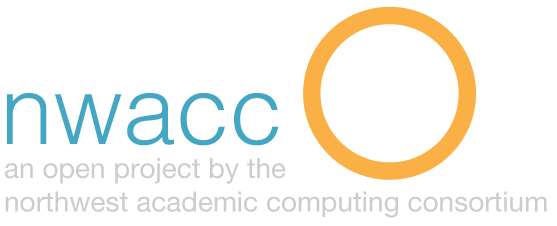Digital Literacy: What is it?
There has been much talk about digital literacy and the importance of preparing students to be digital citizens. Jason Ohler talks about the DAOW of literacy. “Digital, Art, Oral and Written literacies- the DAOW of literacy – are crucial for personal, academic and workplace success in the Digital Age.” So what is that students should know and be able to do when they leave high school or college? My office is just off a computer lab and from time to time I like to hang out and watch how students use the lab. Far and away, particularly mid-semester, students are on FaceBook and Youtube, often at the same time. They are looking up information on the web, and through the UP library online databases. They use Powerpoint for presentations and Word for papers. Sometimes you see students using email or twitter, but for the most part they are using the standard apps for standard social and/or academic purposes. Students know how to operate these applications because they were needed for academic, social or entertainment purposes. So, how and where do students learn how to be critical viewer/reader of media? How do they learn to gauge the level of credibility on the websites and the research articles they read for classes? Students have spent the majority of their time in school reading, writing and discussing text. In order to be admitted at UP, they must have demonstrated mastery of these skills, at least to a level necessary for the high school GPA and tests like the SAT and ACT. However, the digital literacy skills that students need, to understand the grammar of media, the mash up of text, video and audio on the web, requires the same structured, focused curriculum that drives the traditional literacies. It’s not about learning the same skills in a different context, it’s about learning different skills entirely. UP graduates become teachers, artists, social workers, managers, engineers, writers, biologists, entrepeneurs, politicians and so on. And, for the most part, we prepare them very well to enter these careers in the 1990′s. Sure, students use technology as part of their academic work at our school, but I don’t think they are proficient in the digital literacies that will be required in the workplace. We can never anticipate which applications or platforms will be in vogue two, three or four years down the road. But we can teach students how to learn new literacies, to have the mindset to reason through new applications of technology in ways that are ethical, moral and professional in the context of their work. Mike Ribbles cites nine elements of digital citizenship. They are: digital access, digital commerce, digital communication, digital literacy, digital etiquette, digital law, digital rights and responsibilities, digital health and wellness and digital security. We can quibble over whether there should be more or few elements, but this list can serve as a basis for discussion. Regardless of the type of career that students select after their education, if they aren’t prepared to be digital citizens, we are doing a disservice to our graduates. I think that every conversation about curriculum, pedagogy and assessment should include some mention of digital literacy and citizenship. I remember when I began my first teaching job in 1985. There was an old IBM computer in the back of the library, one that used 12 inch floppy disks. I could load the disk, hit the DOS commands at the cursor, then go for coffee while the word processing program loaded. If it wasn’t for a very patient high school freshman, we wouldn’t have been able to create the school yearbook on that machine.

